
Veterinary scanning surveillance enables early detection and investigation of new or reemerging animal diseases and, helps us to understand disease patterns and trends. The APHA and SRUC diagnostic services are the cornerstone of the scanning surveillance system in Great Britain. In England and Wales this is delivered by an APHA network of Veterinary Investigation Centres and partner post-mortem providers, and in Scotland by a network of SRUC centres.
We offer post-mortem examinations and diagnostic testing, as well as advice and support, to veterinary surgeons in practice to diagnose, control and prevent disease in farm animals. A common reason for submission to the network from January to April is to investigate the cause of abortion or stillbirth in ruminant species.
For cattle, an abortion is defined as the expulsion of a calf at less than 271 days after service, or less than 265 days after implantation, whether the calf is born dead or alive. A stillborn calf is defined as having been born dead at more than 271 days of gestation, or one that dies within 24 hours of birth.
WHAT IS CONSIDERED ABORTION IN CATTLE AND HOW TO REPORT IT
It has been suggested that an abortion rate of less than 2.5% is considered acceptable in terms of physiological loss. Therefore, investigation at a rate above 2.5%, or where a cluster of abortions or stillbirths occurs in a short time-period, is advised. It is important to review and record all abortions and stillbirths on-farm. Current legislation requires anyone in charge of bovine animals to report any abortion to APHA within 24 hours, as part of brucellosis surveillance: Brucellosis: how to spot and report the disease - GOV.UK (www.gov.uk). Many new disease incursions into dairy and beef systems present with abortion as an initial clinical finding, so there are good reasons to consider investigating beyond statutory requirements.
This story is from the {{IssueName}} edition of {{MagazineName}}.
Start your 7-day Magzter GOLD free trial to access thousands of curated premium stories, and 9,000+ magazines and newspapers.
Already a subscriber ? Sign In
This story is from the {{IssueName}} edition of {{MagazineName}}.
Start your 7-day Magzter GOLD free trial to access thousands of curated premium stories, and 9,000+ magazines and newspapers.
Already a subscriber? Sign In
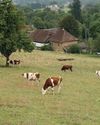
How to Buy a Smallholding in France- Long-time smallholder Lorraine Turnbull looks at the practicalities of moving to rural France
Aspiring smallholders are continually thwarted by the prices of smallholdings and property with land located within the UK. Even the humblest croft in Scotland comes with a substantial price tag and conditions which would make even an adventurous wannabee consider carefully. But all is not lost. For those willing to take the adventure of a lifetime, there is always Europe, and one of the most popular places is France.

Meet the Bournemouth goats and their supporters
These capricious animals are hard workers preserving the natural habitat
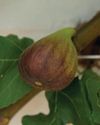
Still warm enough to sit outside with a Pizza
Henrietta Balcon uses fresh figs to create an unusual dish at Harvest time
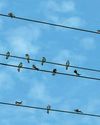
Goodbye to the birds of spring and summer
If you look and listen you might be able to see them preparing to leave says The RSPB
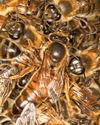
Get ready for the colder weather in the warmth of late summer
Claire Waring advises on doing the best to make sure your colonies survive until next spring
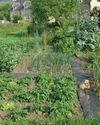
Preparing the Veg Patch for Winter
Lee Senior says, a well-run plot can excitingly continue to produce good quality, tasty, fresh food for much of winter
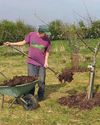
Time to prepare to plant your orchard
Wade Muggleton, smallholder and author of The Orchard Book, shares his practical experience so you can create your own fruit collection
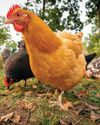
Choosing feed for the autumn
As autumn approaches, Joanna Palmer, nutritionist at the Smallholder Range, offers advice on choosing the right feed to support your adult birds through their annual moult and ensure your young birds grow and finish well at this time of the year.
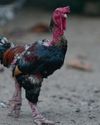
Vet advice from an experienced poultry vet
Reflecting on how much the humble hen has helped people world wide plus advice on stopping the scourge of red mite
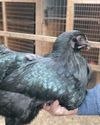
Give your hens some support
Paul Donovan looks at the right and wrong ways of handling birds